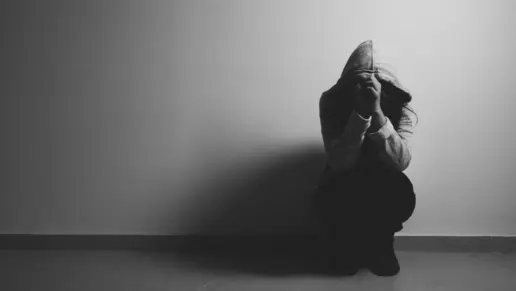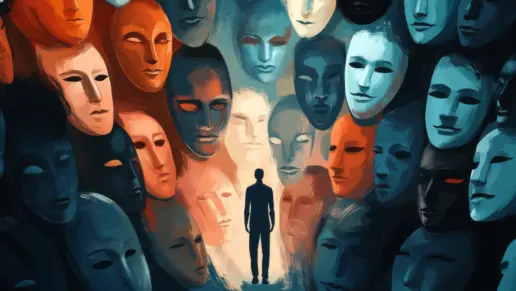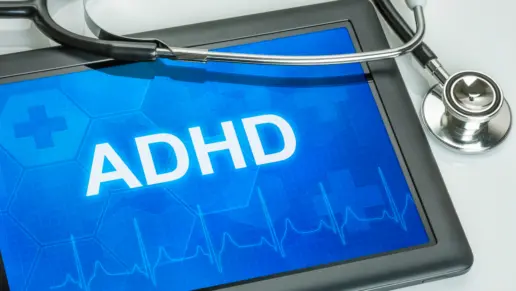OCD and Substance Use Disorder: An Overview
Living with obsessive compulsive disorder (OCD) can be difficult on its own. When combined with a substance use disorder (SUD) it can become even more challenging. When someone has more than one mental health diagnosis, often combined with a substance use disorder, this is known as a dual diagnosis.
When a person suffers from both OCD and SUD they often require specialized dual diagnosis treatment that addresses both disorders.
What Is Obsessive Compulsive Disorder?
Many people misuse the term “OCD,” so it is important to understand the true OCD definition. Obsessive compulsive disorder is a mental health condition defined by symptoms of intrusive, unwanted thoughts, urges or images (obsessions) and repetitive behaviors or rituals (compulsions) performed to reduce anxiety caused by the obsession.
OCD can be debilitating and significantly impact a person’s daily life. It is not simply liking things in a certain way or being particular. OCD symptoms include intrusive thoughts, compulsive rituals, anxiety about perceived threats and sometimes avoidance behaviors that can significantly impact daily life and well being.
Dual Diagnosis OCD and Addiction
Like many mental health disorders the coexistence between OCD and addiction is often due to multiple risk factors including genetic, cultural and environmental factors which play a role in developing both disorders.
Individuals with OCD may turn to substances to self medicate or numb the symptoms caused by obsessions and compulsions. While using substances may temporarily provide relief it is short term and can create dependence.
If you’re reviewing benefits or trying to understand coverage for dual diagnosis care, you can learn more about rehab options to see how insurance may support treatment for both OCD and substance use disorders.
Do You Self Isolate with OCD?
Social isolation can result from OCD. Fear of being judged or misunderstood can cause people to withdraw from friends, family and enjoyable activities, leading to loneliness. This loneliness and lack of social support are risk factors for developing substance use disorders. Self medicating with substances can in turn worsen OCD symptoms.
OCD Symptoms
Understanding OCD’s meaning is the first step in recognizing its impact and seeking effective treatment options. Recognizing OCD symptoms is crucial for identifying the disorder and seeking dual diagnosis treatment. These symptoms can vary in how they present and in their intensity, but all cause significant distress and impair functioning. OCD symptoms can include:
- Obsessions: Undesired urges or images that frequently intrude on the mind and often cause anxiety and distress. The person tries to ignore, suppress or neutralize these with compulsions.
- Compulsive Rituals: Repetitive behaviors or mental acts the person feels driven to perform in response to obsessions to reduce anxiety.
These compulsions and obsessions are time consuming (e.g., more than one hour a day), cause significant distress and interfere with daily activities. It’s important to note that OCD symptoms cannot be caused by substance use or medical conditions.
Facts About OCD
OCD is relatively rare and because of this, it’s also not well understood by the general population. However, there are some key facts about OCD that everyone should know:
- OCD affects around 1.2% of the United States population, with a similar global impact.
- Childhood cases are more prevalent in males, but adult women are somewhat more likely to be impacted.
- Onset typically occurs in childhood or early adulthood.
- OCD is not just perfectionism or organizational preferences.
- Obsessions and compulsions vary, but there are common themes.
Whether someone understands that these obsessions or compulsions are untrue varies, with most individuals having a good or fair understanding of the truth.
What Are Common Obsessions?
Obsessions can vary, but common themes include:
Contamination Fears
Fears of germs or getting sick.
Fear of Harm
This may include harm to self or others.
Order and Symmetry
Needing things to be in a certain order, configuration or pattern.
Forbidden Thoughts
Often of taboo topics like violence or religion.
Keep in mind that these obsessions involve significant amounts of time and interfere with a person’s daily life and functioning.
Where Can I Find Information About Substance Abuse Treatment?
If you or someone you know is struggling with OCD and addiction there are resources available to help:
- SAMHSA’s National Helpline: Call 1-800-662-HELP (4357) for free, confidential support.
- Rehab.com: This site is a resource for finding treatment centers and recovery programs.
- Local Support Groups or Mutual Help Programs: Organizations like Alcoholics Anonymous (AA), Narcotics Anonymous (NA) or SMART Recovery offer community support and guidance.
You can also learn more about rehab options if you want to compare treatment centers or explore programs that address both OCD and addiction.
What Are the Treatment Options for OCD and Drug Addiction?
Research shows that treating dual diagnosis disorders like OCD and addiction at the same time leads to better success than treating them separately.
A dual diagnosis approach that simultaneously addresses dual diagnosis disorders may include individual therapy, group therapy and medication management. This can be done in a variety of settings where treatment interventions are actively combined to address both disorders together, including:
- Detox: Depending on an individual’s substance use history the first step in treating addiction is safely managing withdrawal symptoms under medical supervision.
- Inpatient Treatment: Participants receive comprehensive care in a structured environment with a focus on therapy and coping strategies.
- Outpatient Treatment: This is a flexible option that allows individuals to receive treatment without interrupting their daily responsibilities.
- Aftercare: This is ongoing support after more intensive treatment. It can include therapy, medication management, support groups and mutual help programs (e.g., NA, AA, Smart Recovery) to maintain long term recovery.
Dual diagnosis treatment combines these approaches with substance use therapies to help address and manage OCD and addiction at the same time. Evidence based treatments for OCD include psychoeducation, medications and exposure and response prevention (ERP).
The front line treatment for OCD is ERP which is a type of cognitive behavioral therapy (CBT). ERP involves helping the individual confront their discomforts related to their obsession and resist performing their compulsions.
This can be done in real time with actual situations, through imagined exposure or by being exposed to the physical sensations associated with anxiety or discomfort.
Living with OCD and substance use disorder can feel overwhelming, but recovery is possible with the right support and dual diagnosis treatment. Recognizing the signs of OCD, understanding the link between OCD and addiction and seeking professional help are critical steps in regaining control of your life.
Nearby Addiction Centers That Treat Dual Diagnosis
Finding facilities near you…




